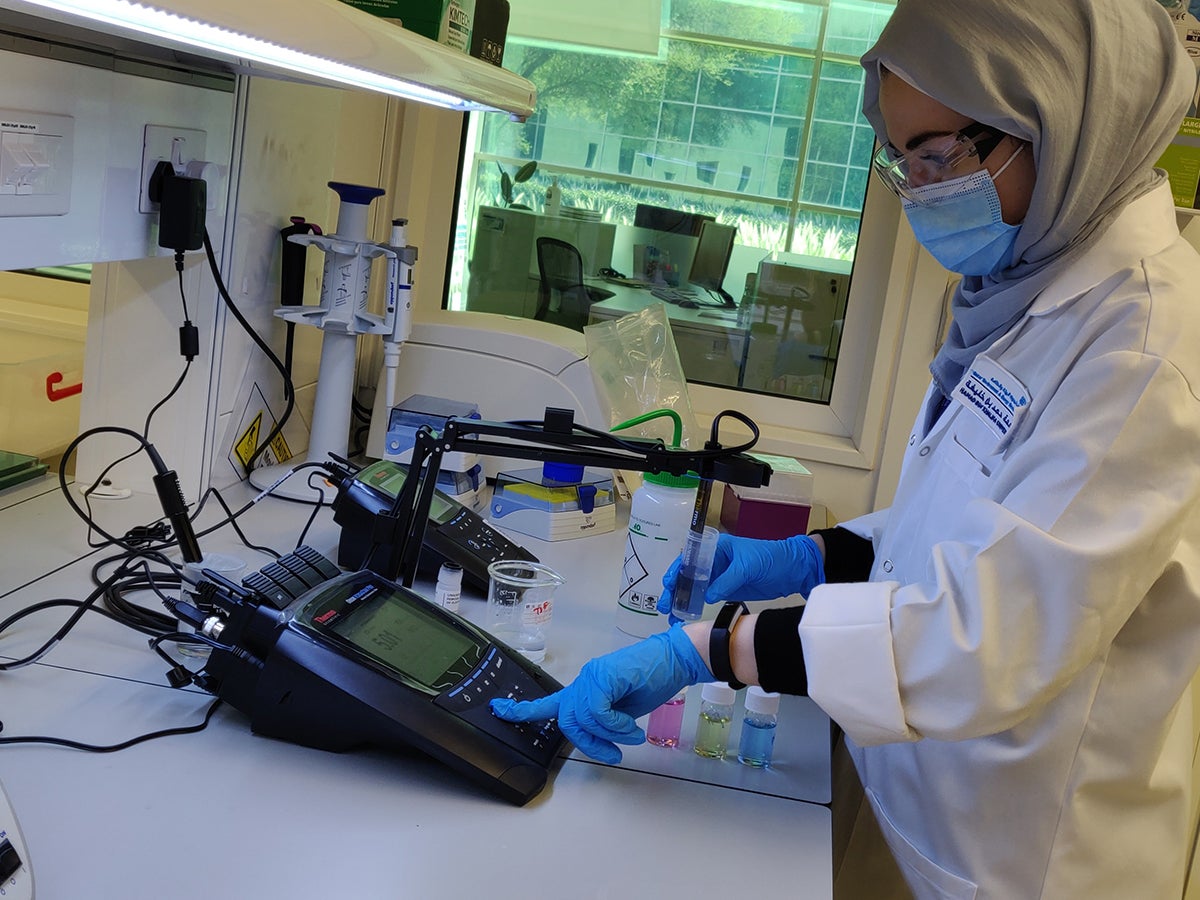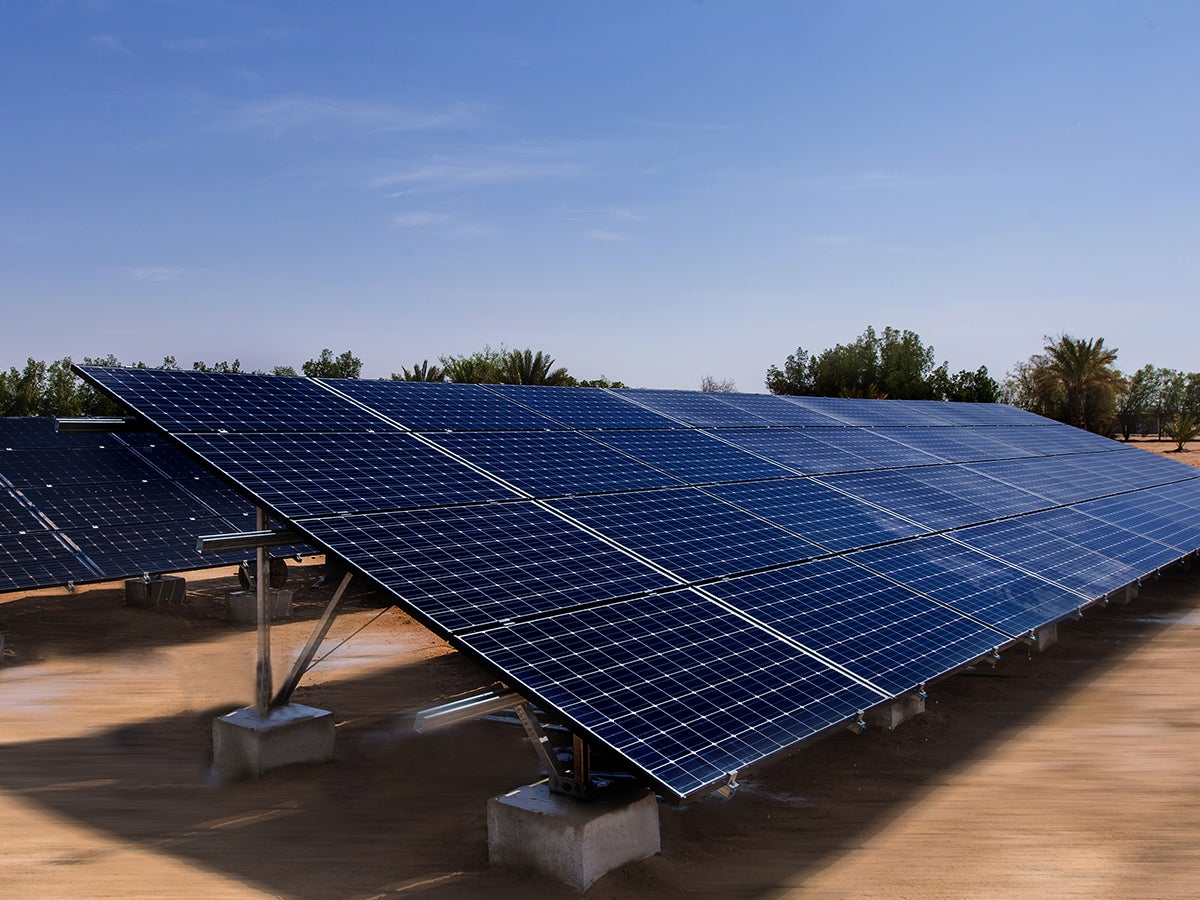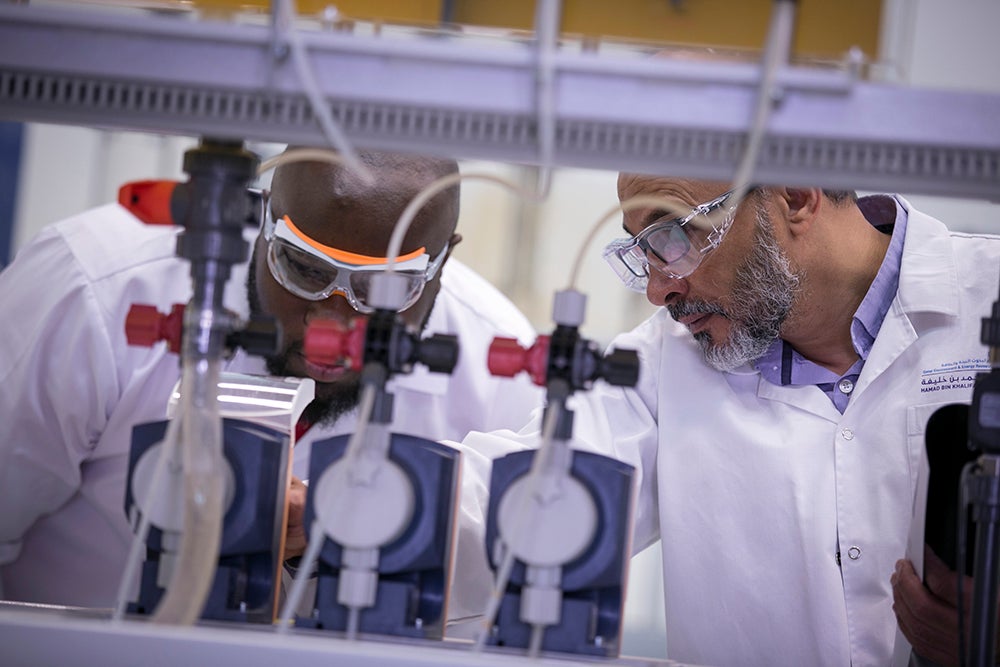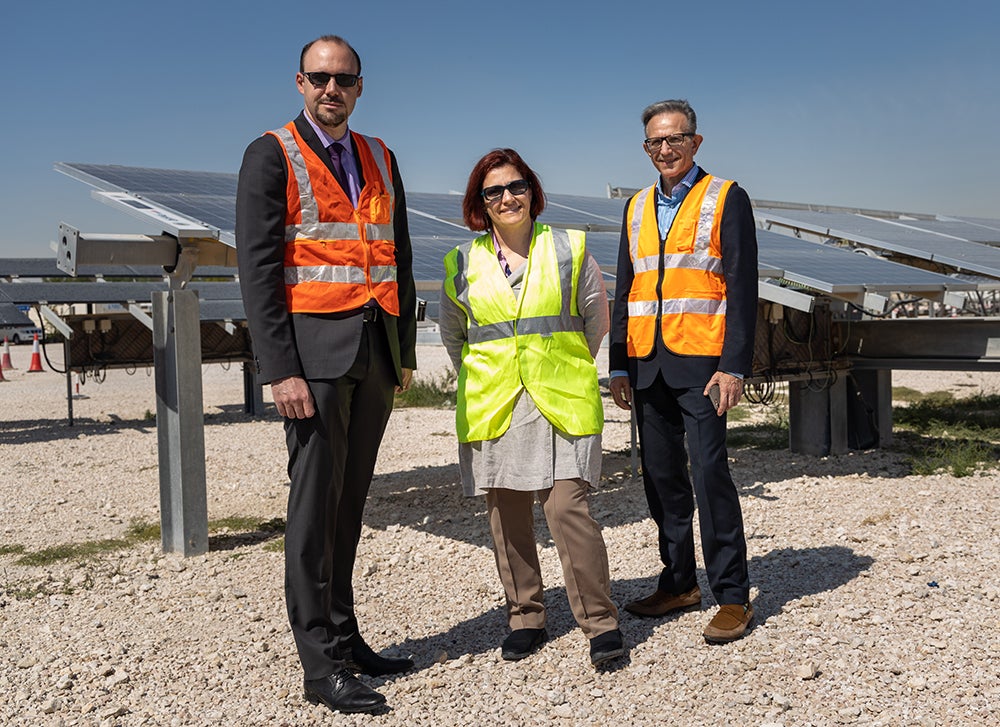
Qatar Environment & Energy Research Institute (QEERI), part of Hamad Bin Khalifa University (HBKU), is celebrating 10 years since it was established as a national research institute mandated to assist Qatar in addressing its grand challenges related to energy, water, and environment.
Supported by Qatar Foundation Research, Development and Innovation, QEERI’s multidisciplinary research addresses critical national priorities, particularly the sustainability challenges unique to countries in arid regions such as Qatar. Given its water scarcity and desert environment, none are more complex than the country’s grand challenge related to water.
Toward sustainable urban water management
Aligned with the Qatar National Research Strategy, QEERI’s team looks at the full scope of the country’s national strategic water resources – both its groundwater and other non-traditional sources, such as treated water and desalinated seawater.
Within just 10 years, QEERI has leveraged its world-class facilities with state-of-the-art equipment, and deployed scientists, researchers, and engineers of the highest caliber to help solve real-world problems with external partners. KAHRAMAA and Qatar Electricity and Water Company (QEWC), are among those key national stakeholders.
QEERI’s research emphasizes the development of advanced technological solutions to address the challenges of providing safe and clean drinking water through desalination, as well as treating and reusing wastewater to help conserve precious water resources. In line with Qatar National Vision (QNV) 2030, one of QEERI’s focus areas is municipal and industrial wastewater treatment and reuse.
“Conservation, reuse, and the protection of scant water resources is critical in the region, while Qatar faces specific water challenges because of its desert environment,” says Dr. Marc Vermeersch, executive director at QEERI. “Our research work takes a holistic approach, with a focus on the circular water economy. At the Water Center, we focus on providing technological solutions and data to support best practices and policy development in the country’s water domain.”
Treated water reuse
Under the mandate of QNV 2030, the reuse of treated water is key in areas such as district cooling and landscape irrigation along with other non-potable, non-food uses. QEERI examines the quality of the treated water, providing data to ensure public acceptance and developing technologies to ensure that there is no threat to the environment or public health from water reuse.
QEERI’s research on water recycling includes water quality improvements and the removal of emerging contaminants. These efforts decrease the carbon footprint of the water use cycle and provide data to ensure public confidence in reusing treated water. The focus is not only on municipal wastewater but also industrial water streams such as oil and gas and other local industries such as food and beverage, paper recycling, etc.
QEERI is exploring novel methods and materials to treat the water and following through with a focus on changing the community’s perception towards reuse for a variety of purposes. For example, QEERI has developed a pilot unit for the treatment of air conditioning wastewater which could allow the conservation and reuse of millions of liters per year of water from building air handling units (AHUs). QEERI is also targeting other streams such as the ablution water from mosques. With the right treatment, such water can be reused for agricultural irrigation or other non-potable applications.
National partners
A recent framework agreement enables QEERI to offer the technical and scientific expertise available in its ISO-certified laboratories to KAHRAMAA, especially in the area of water quality. At the same time, QEERI agreements with national utilities such as QEWC have seen large pilot, patent pending, desalination and wastewater polishing plants installed at partner sites around Qatar, including Dukhan and Doha.
QEERI is extensively involved in collaborative work on water treatment and conservation with industry stakeholders. By combining its R&D efforts, QEERI carries out its commitment to encouraging innovation and helping the country ensure a green future for the next generation.
Tackling multiple aspects of the challenge
Scientists at the Water Center work together with teams at the Economics and Policy Program, Earth Sciences Program, the Energy Center, the Natural and Environmental Hazards Observatory, the Environment and Sustainability Center, and the Corrosion Center to ensure a cohesive approach to related concerns. These include energy consumption in desalination plants or the use of renewable energy for desalination, assessing water quality, and reducing microbial corrosion on water pipes.
Multi-Effect Distillation (MED), enhanced using absorption technology, has been developed at QEERI along with novel thermoplastic materials to reduce scaling and corrosion in drinking water production plants in Qatar. The solution leads to energy reductions of up to 40% over traditional thermal desalination technologies.
In the area of microbiologically influenced corrosion (MIC), one of the costliest forms of corrosion, QEERI’s scientists have synthesized a new, highly efficient antibacterial nanomaterial from renewable chitosan, which can be sourced from shellfish, and lignosulfonate derived from trees. High bactericidal properties make the material an ideal biocide for water disinfection, and for the chronic MIC issue in the oil and gas industry, especially in the Gulf region’s harsh environment; successfully being used for controlling MIC on carbon steel with 85% efficiency. Its biodegradable nature and inexpensive raw materials make it suitable for the future development of more stable, sustainable, cost-efficient biomedical and environmental applications.
Another QEERI innovation is the development of state-of-the-art water filter units for point-of-use purification of drinking water, with better removal of chemical and microbiological contaminants than those currently available on the market. Effective and also inexpensive to produce, these units can be deployed for hospitals, dentists, and home use, as well as in emergency situations and developing countries.
Dr. Jenny Lawler, senior research director of the Water Center, sums up how these initiatives advance the circular water economy: “These achievements are but examples of our aim at QEERI to enhance Qatar’s water cycle at every step. It is an approach that will serve the country in refining and adopting its wastewater reuse capabilities. In turn, it will alleviate the stress on very limited freshwater resources and boost the country’s initiatives to expand parks and green areas in its rapidly developing urban landscape.”
As QEERI celebrates its 10-year milestone, the institute continues to use its leadership, scientific expertise, incredible facilities, and vital partnerships to deliver on its commitment to advance Qatar’s efforts to achieve its sustainability targets for 2030.
For more information on the work of QEERI, please visit hbku.edu.qa/qeeri.








